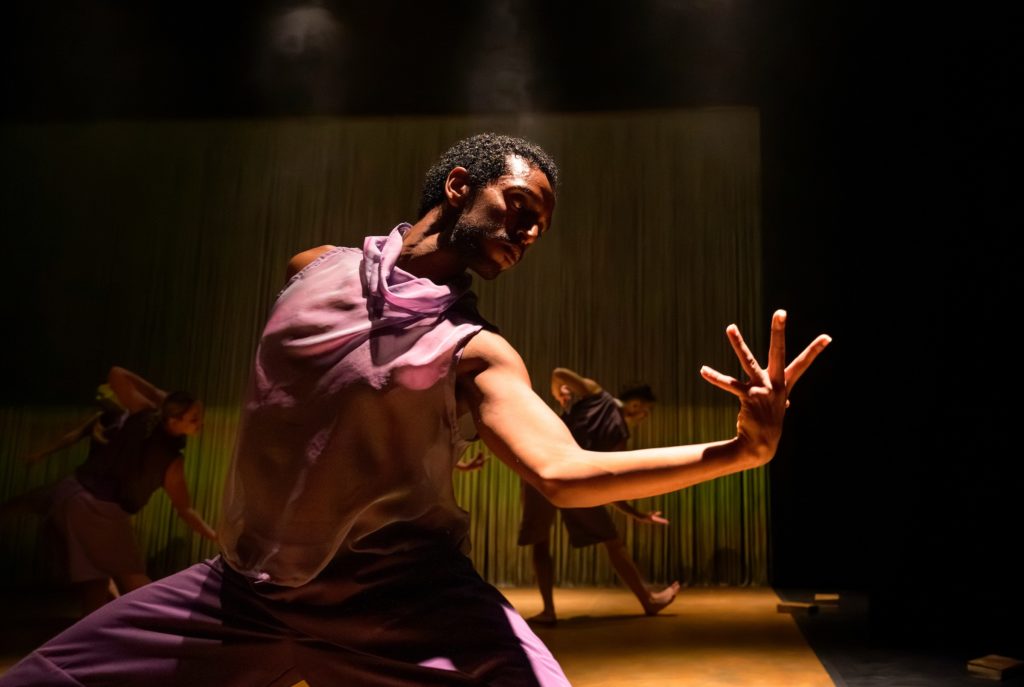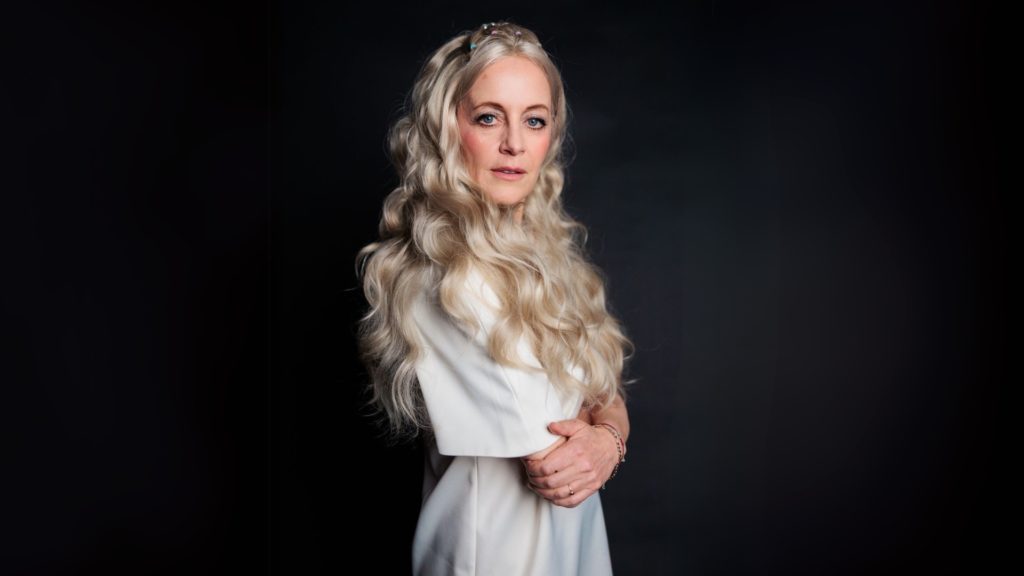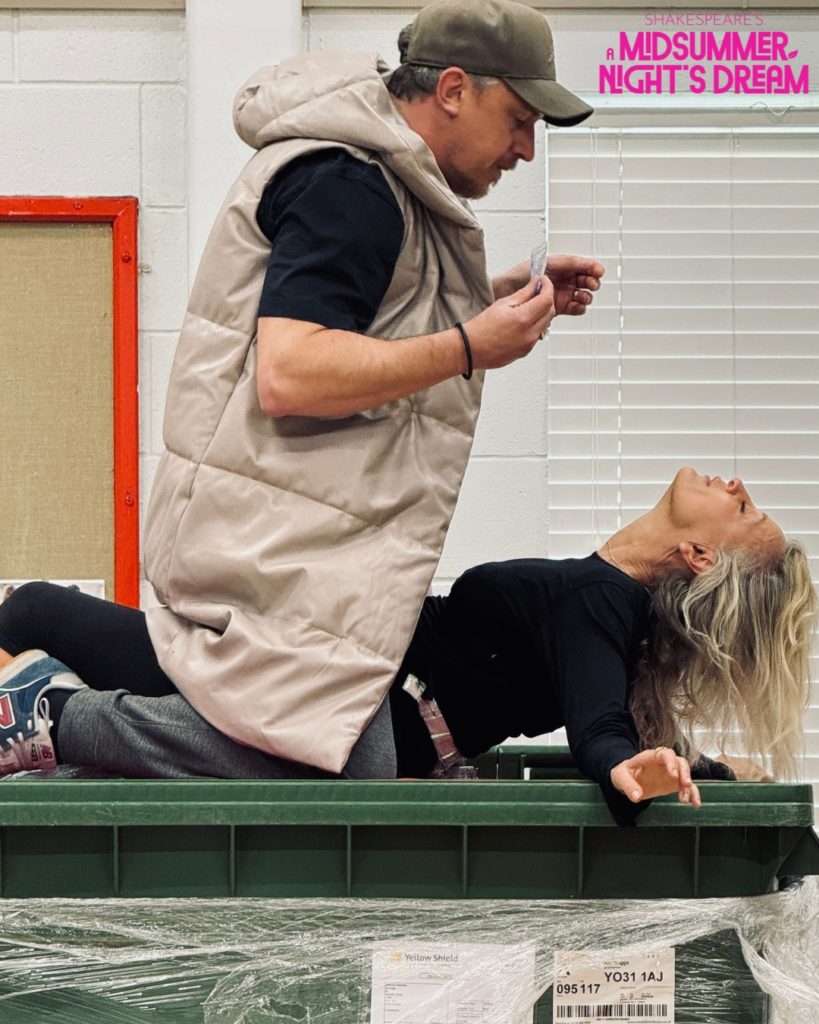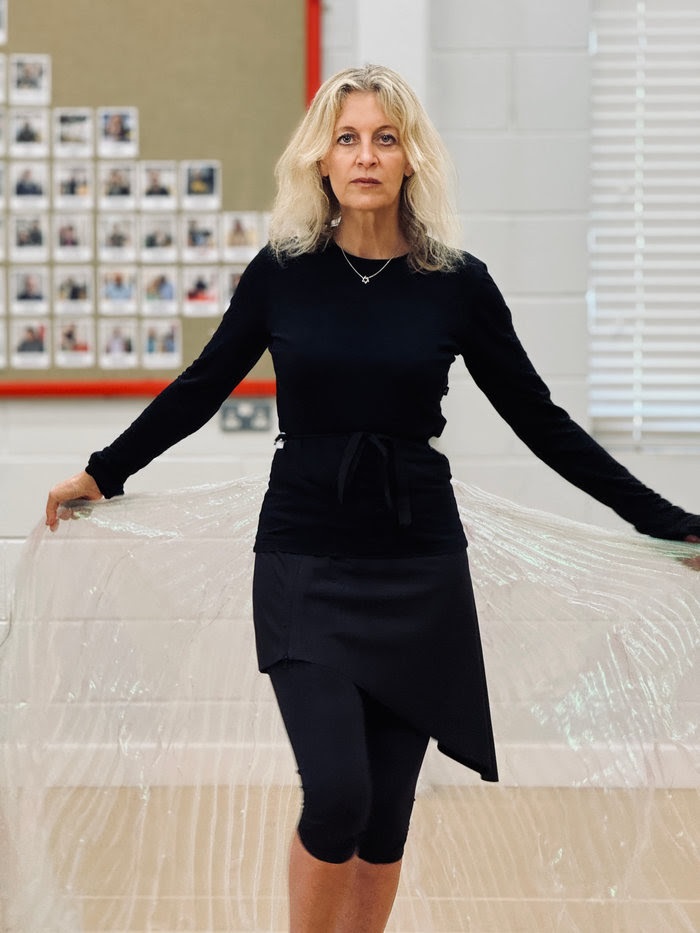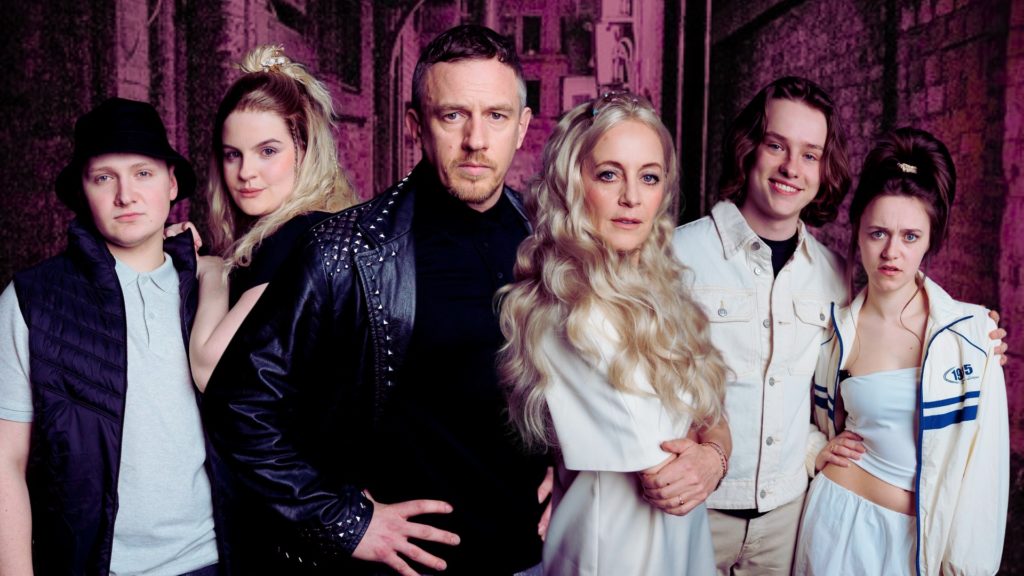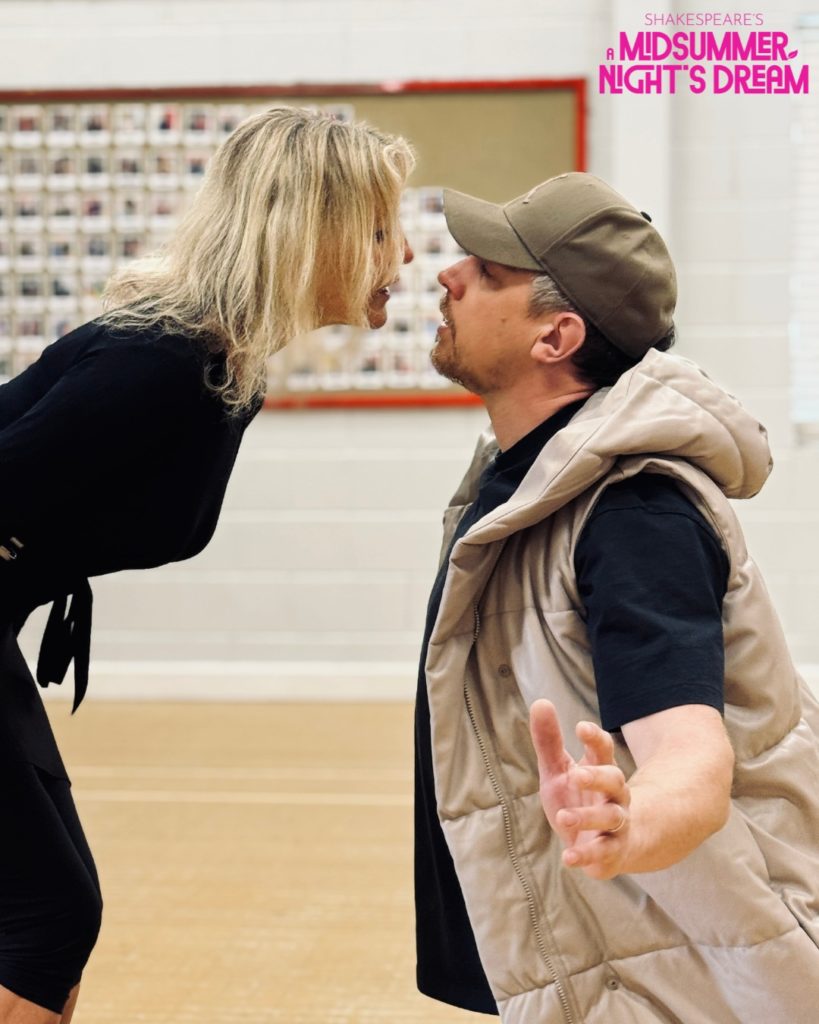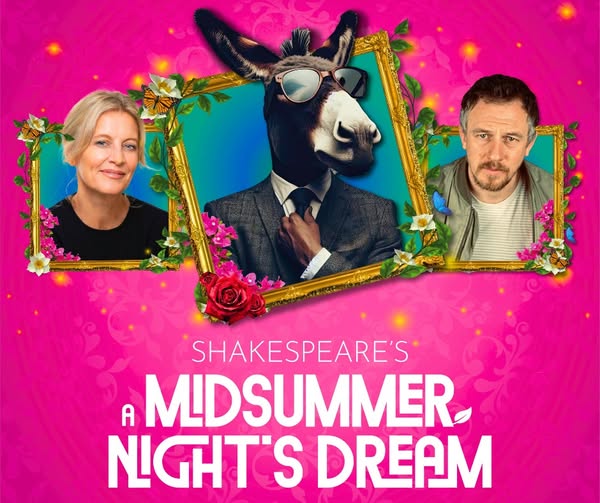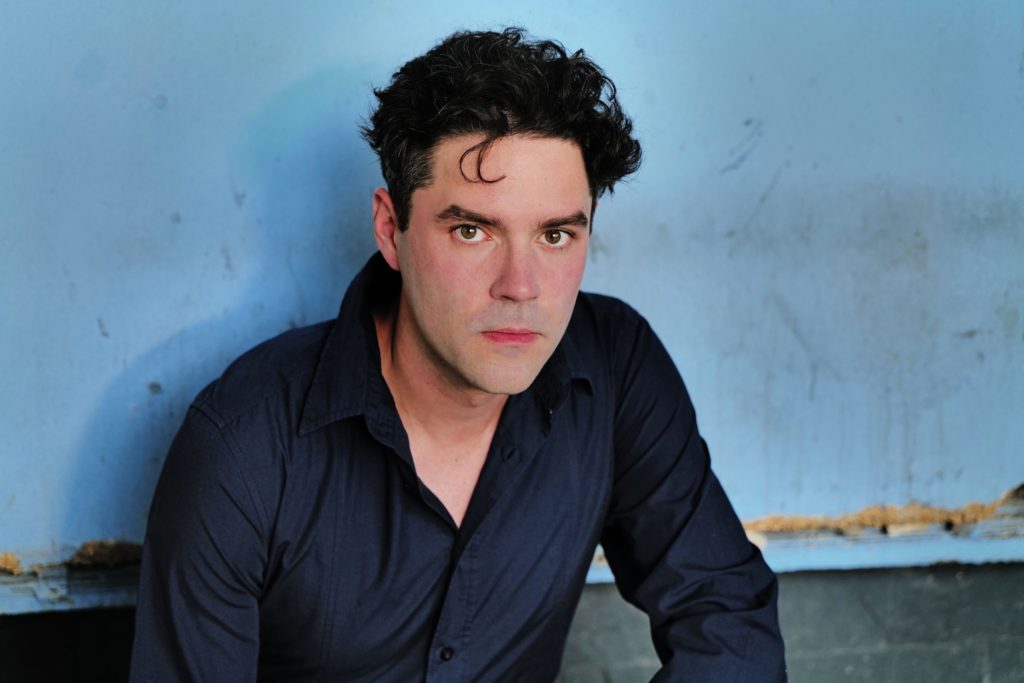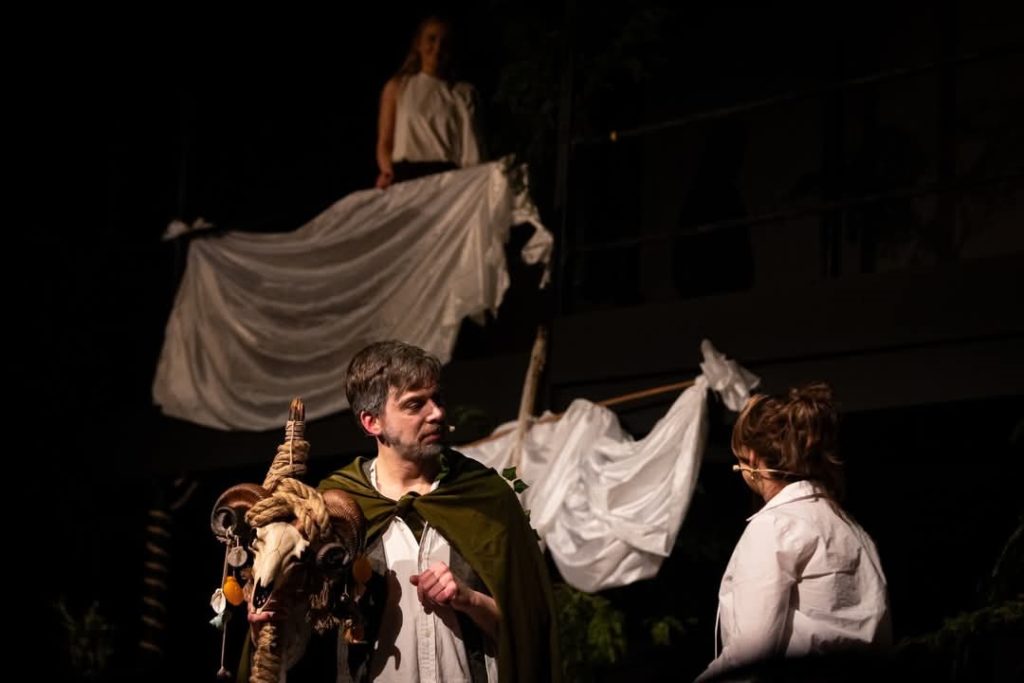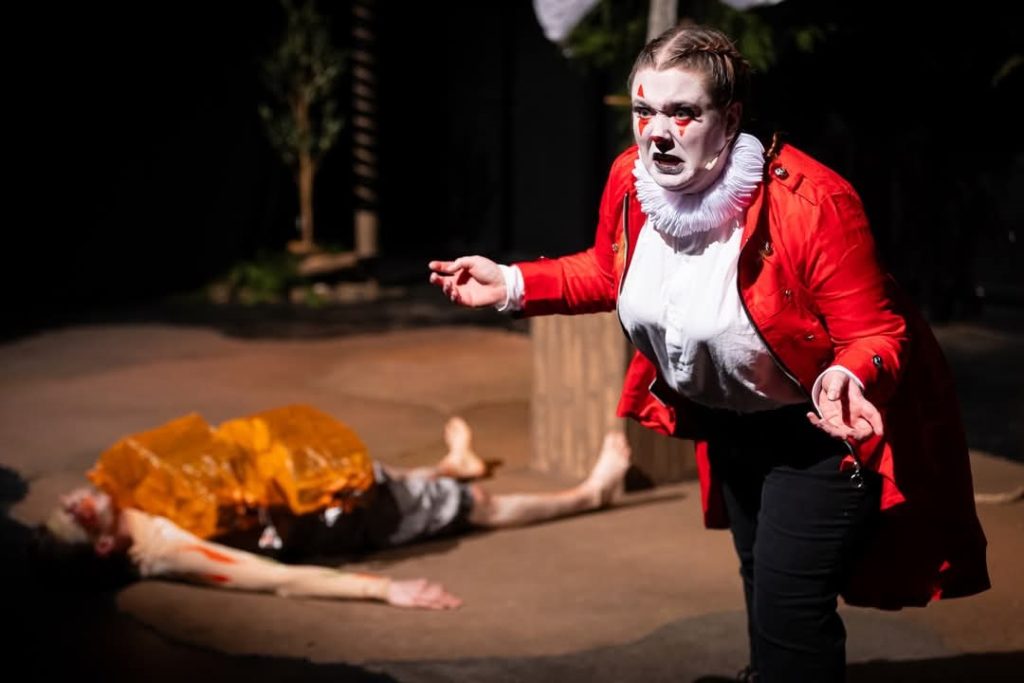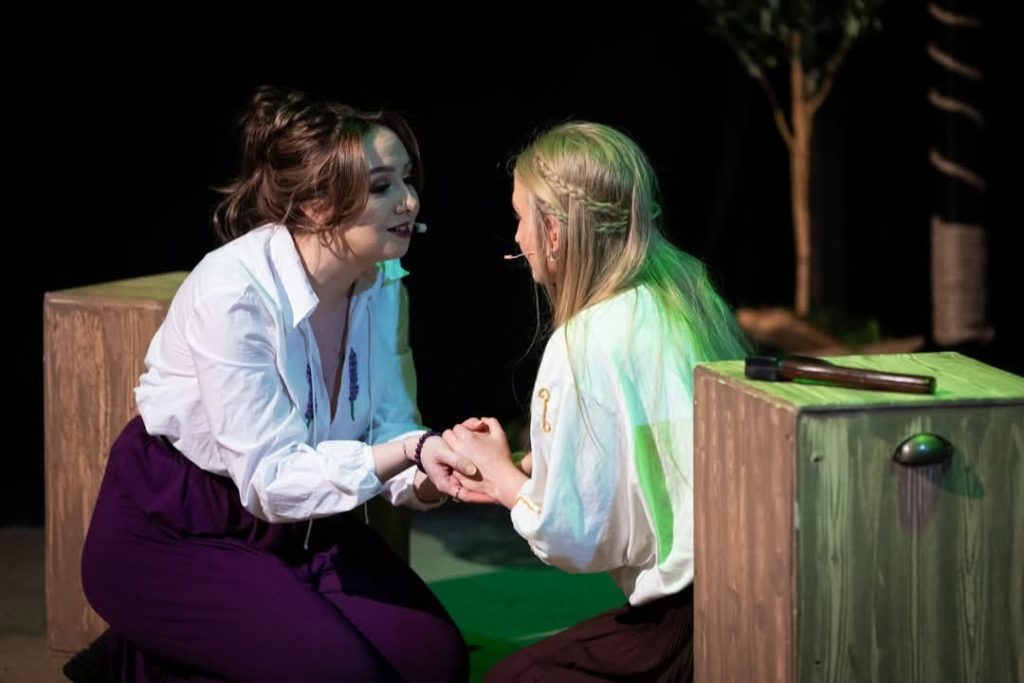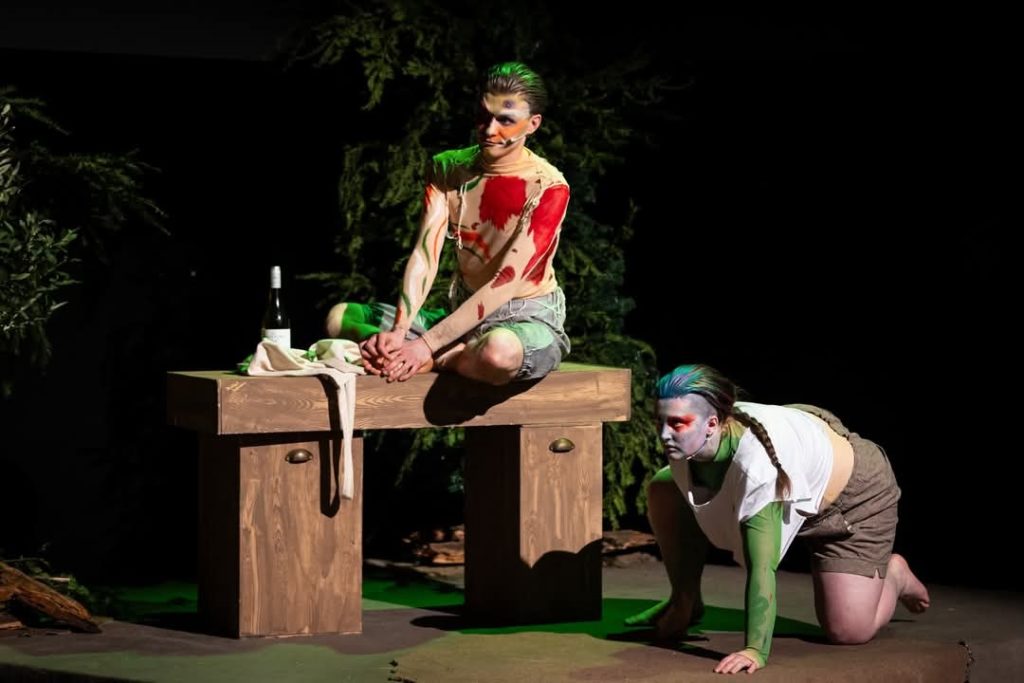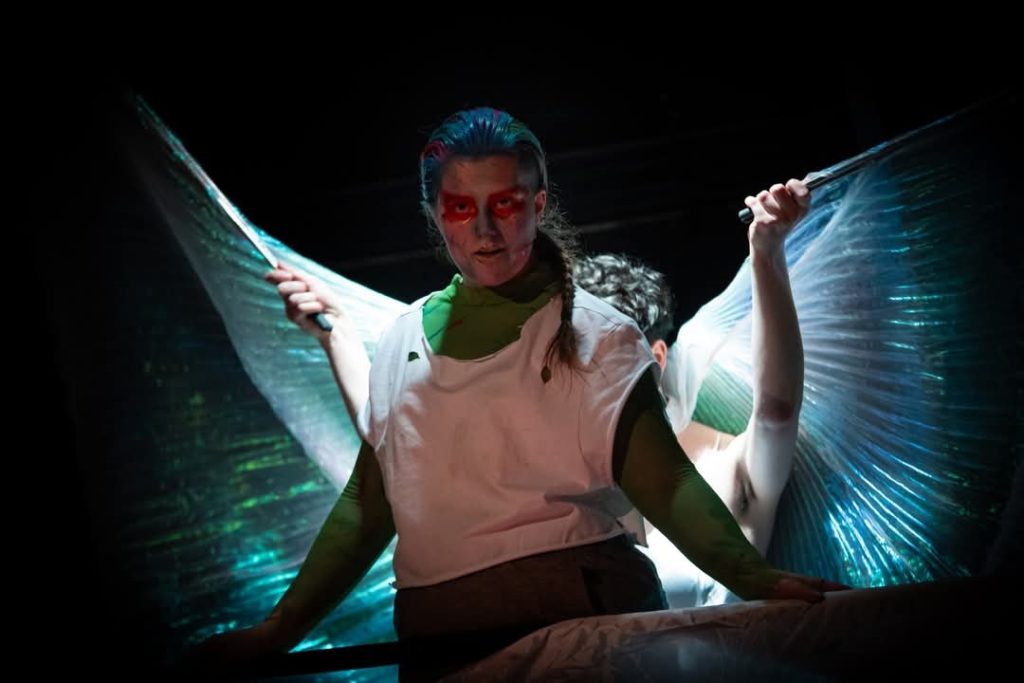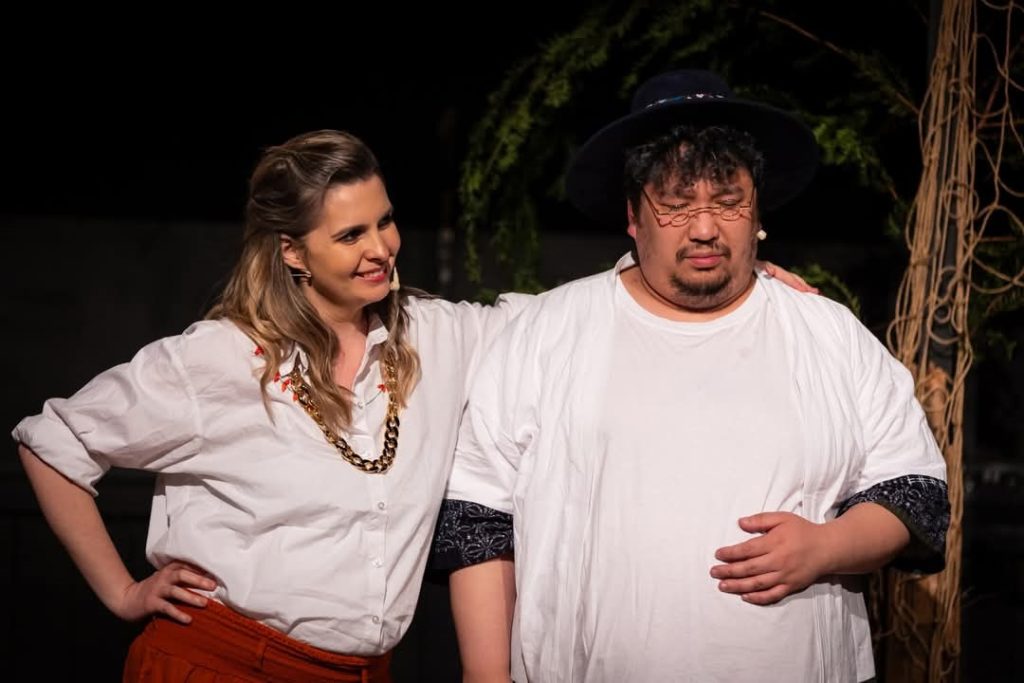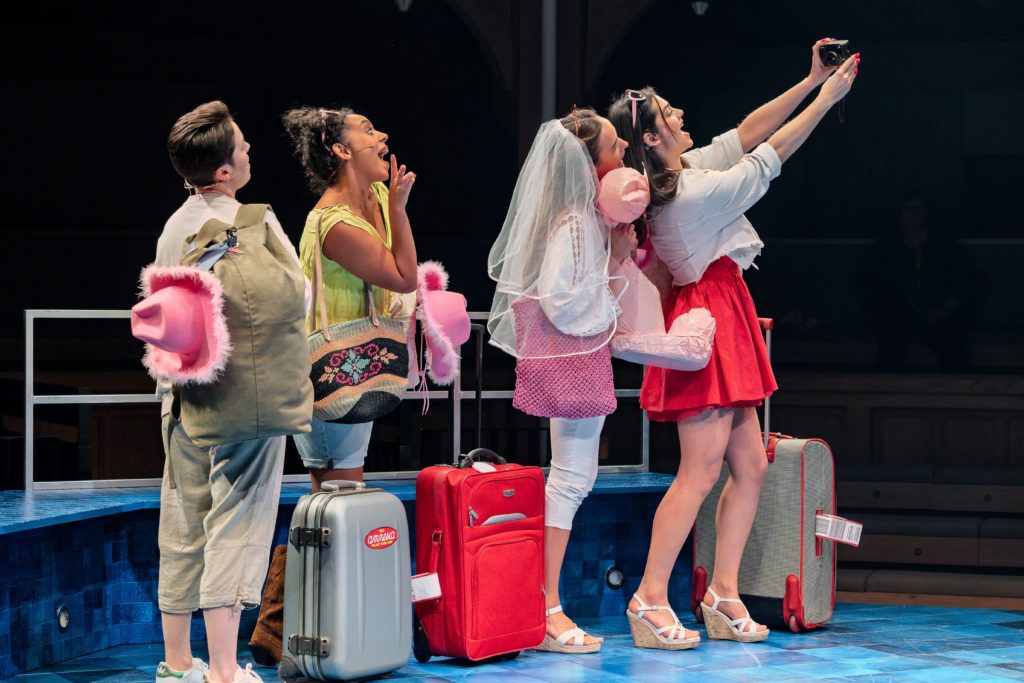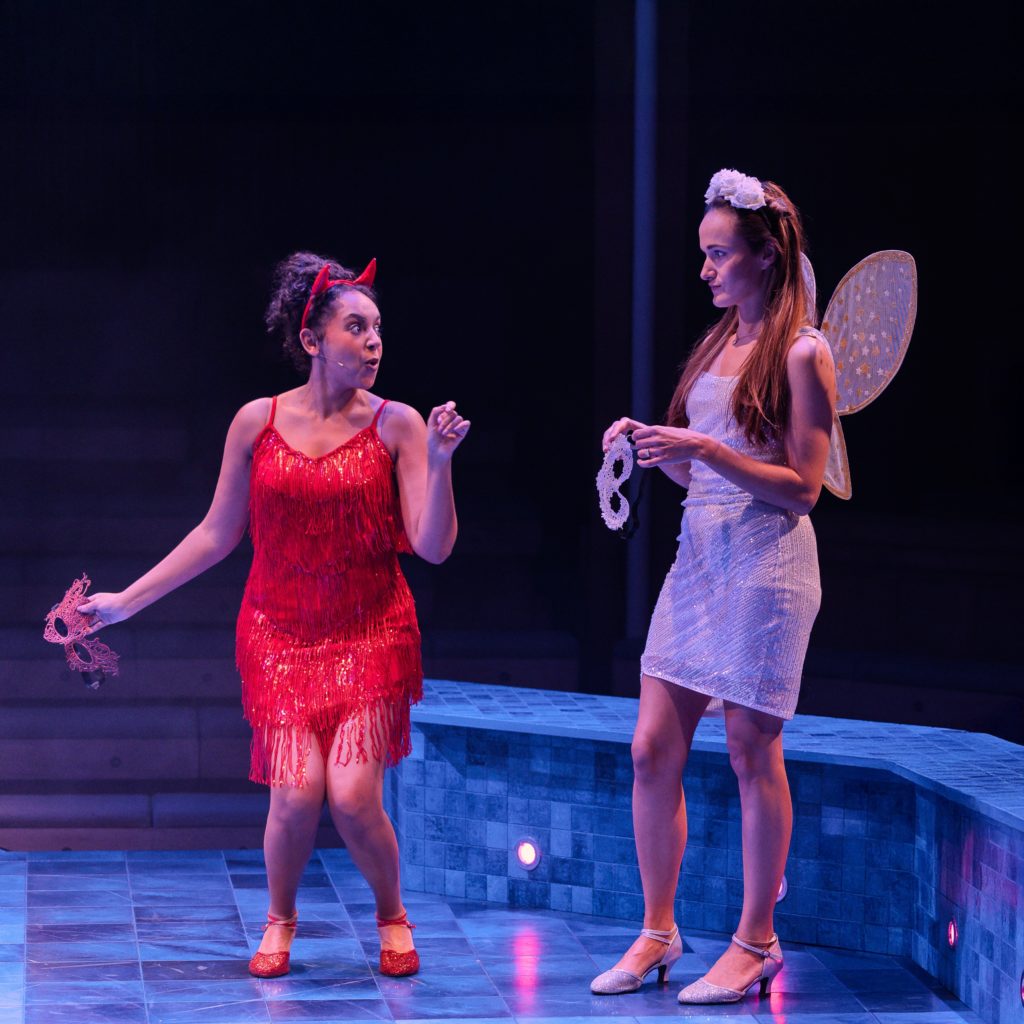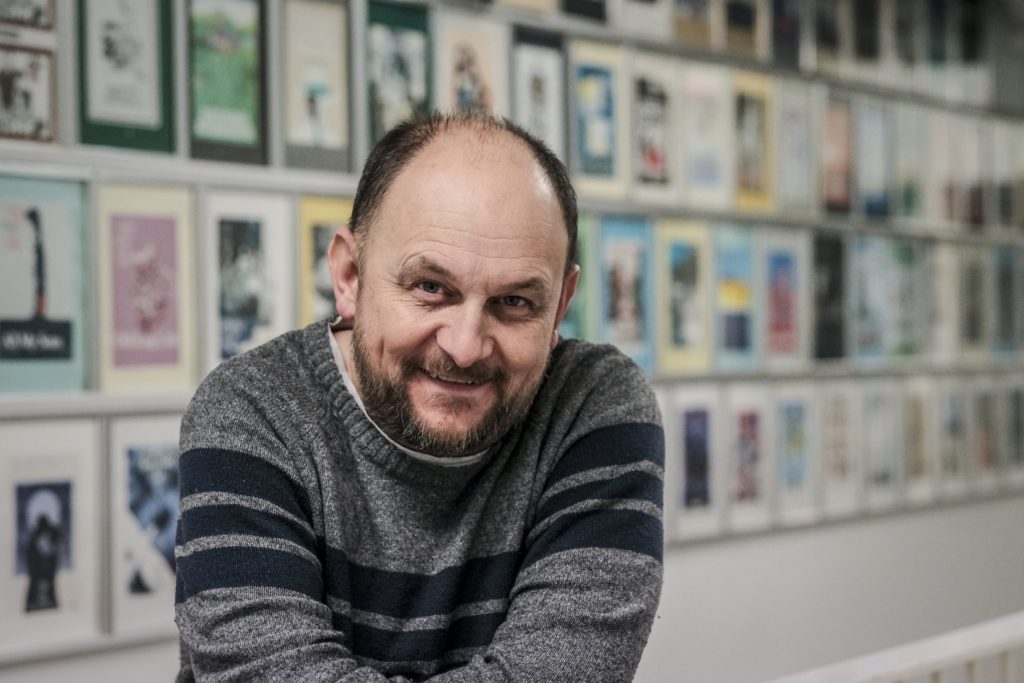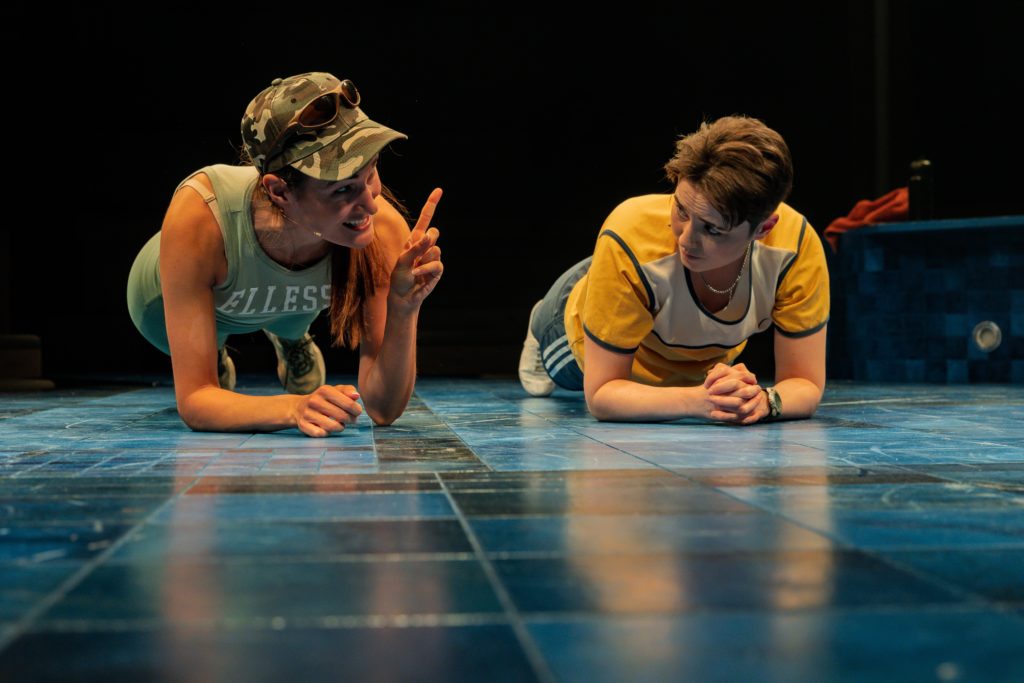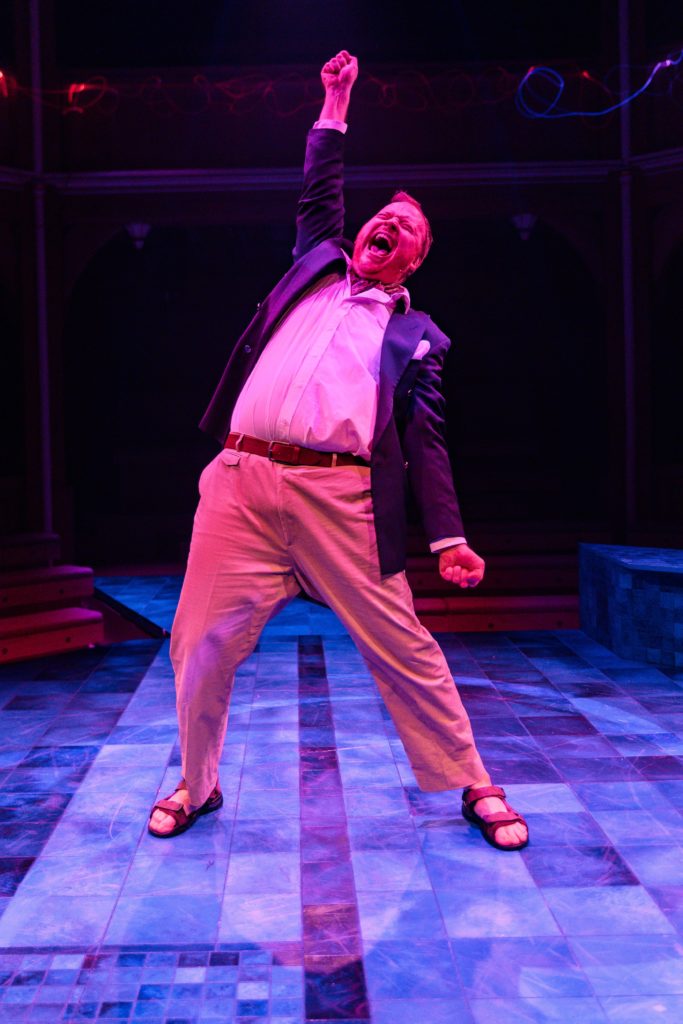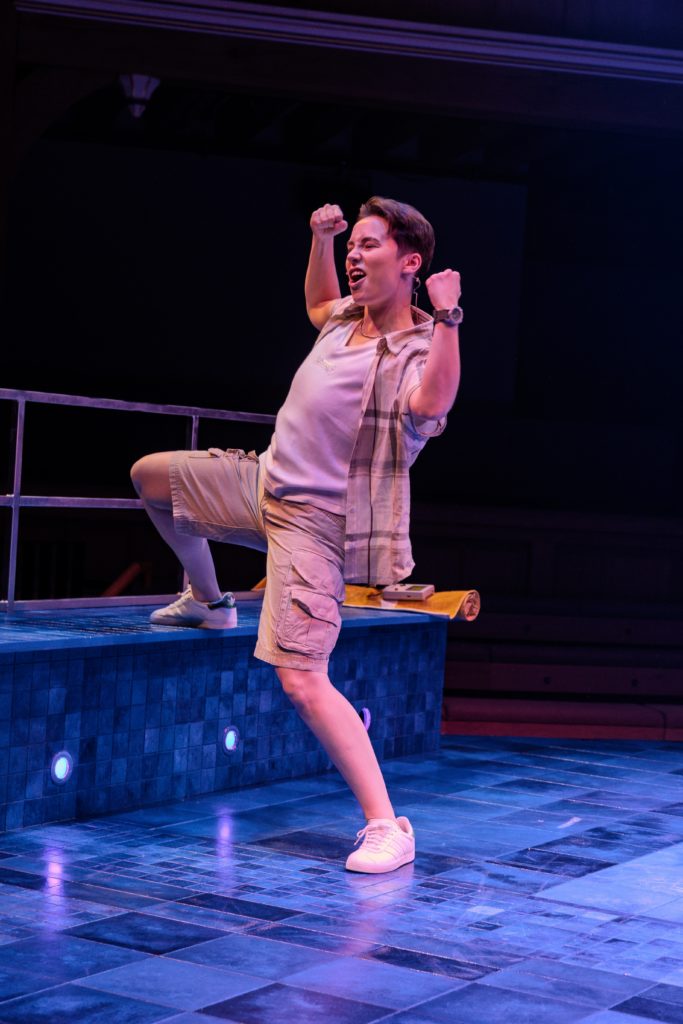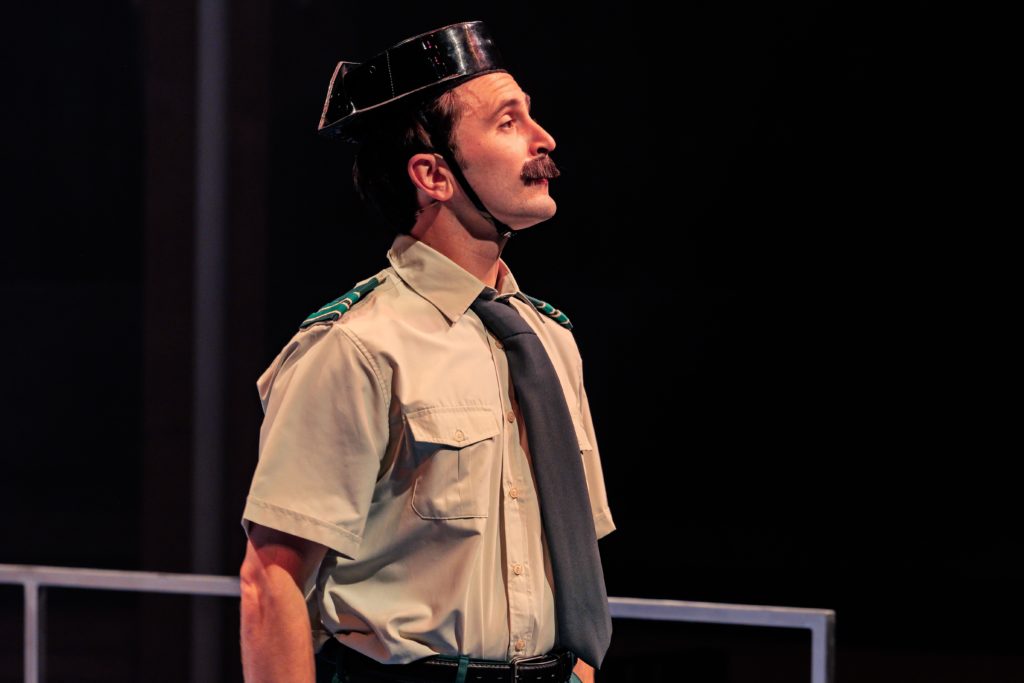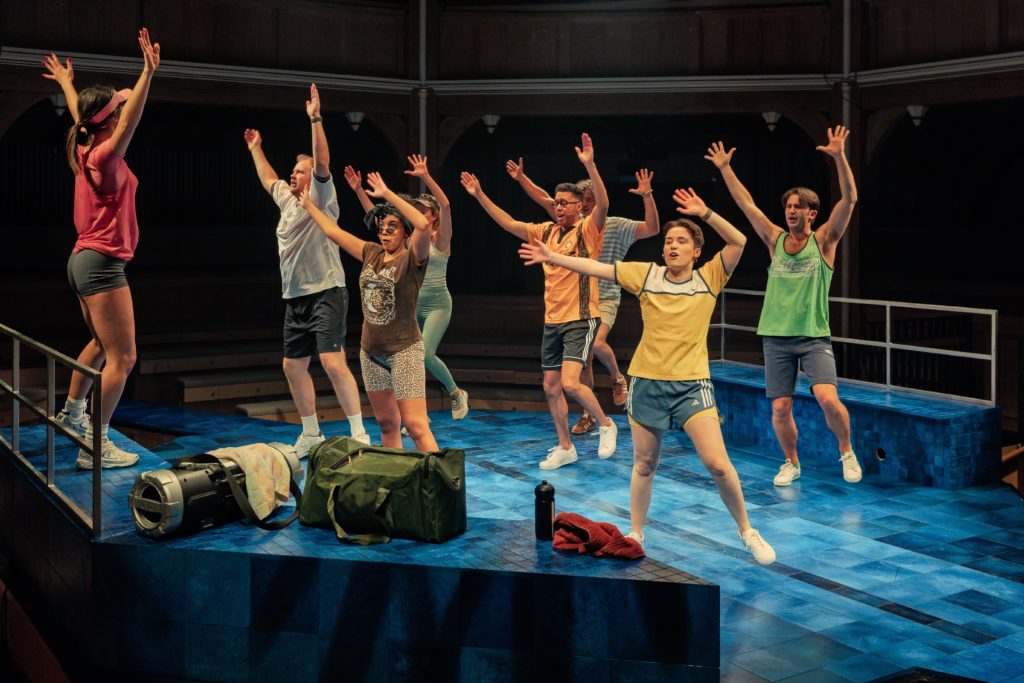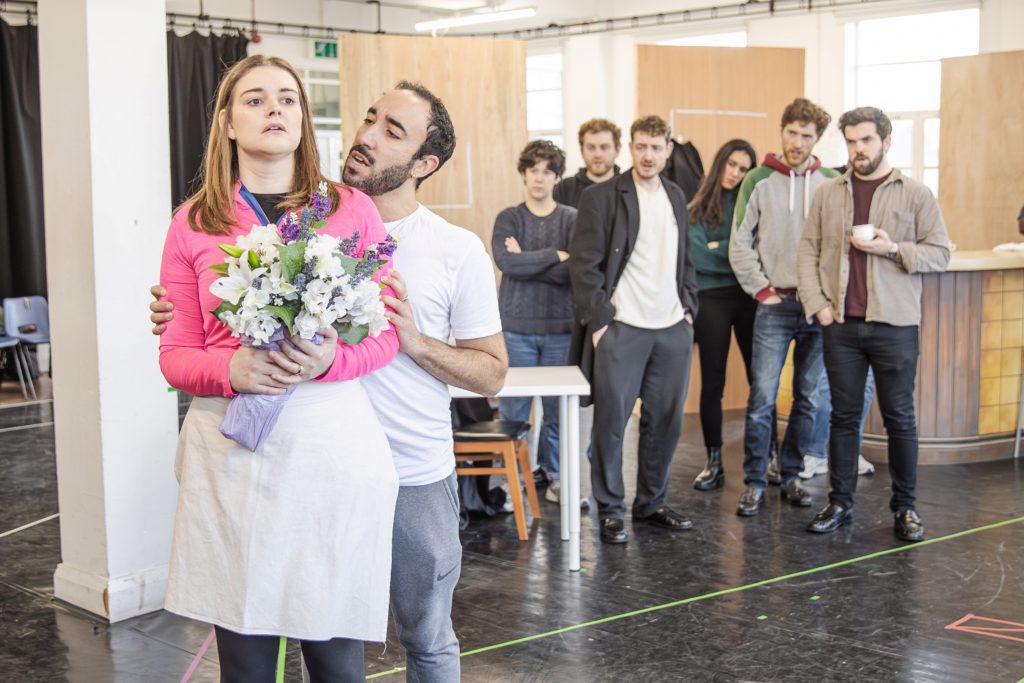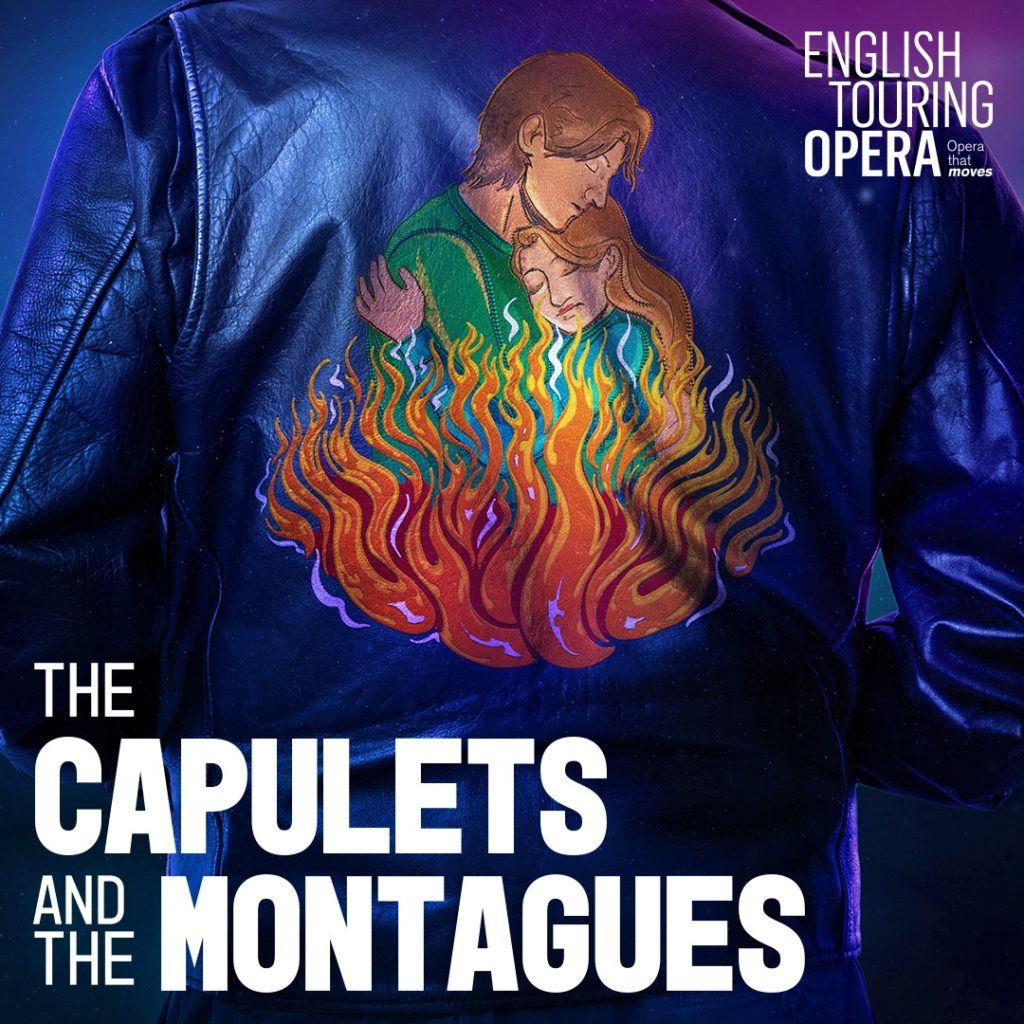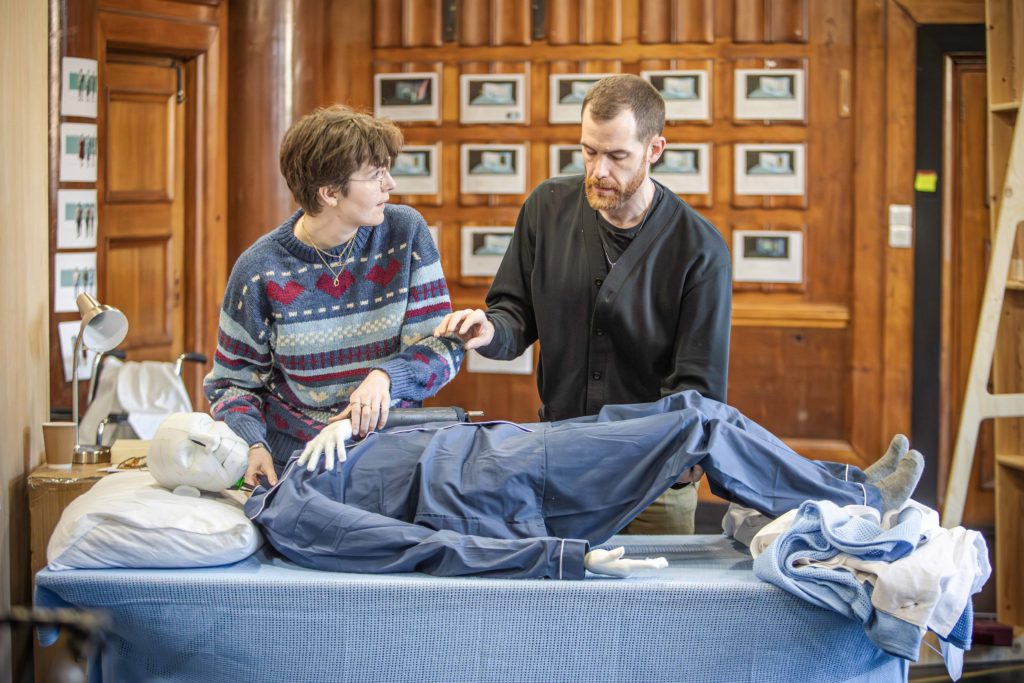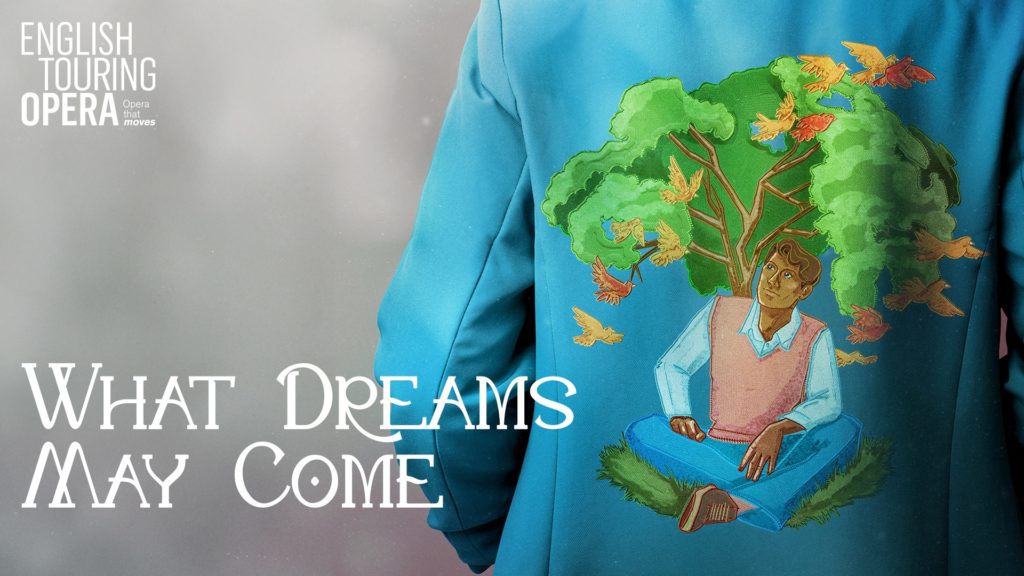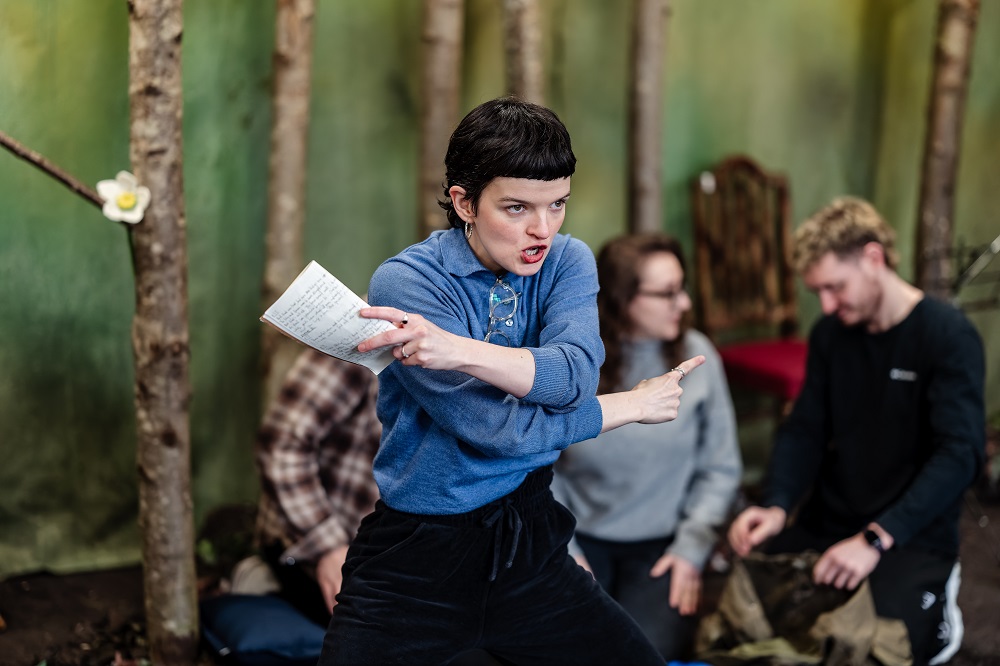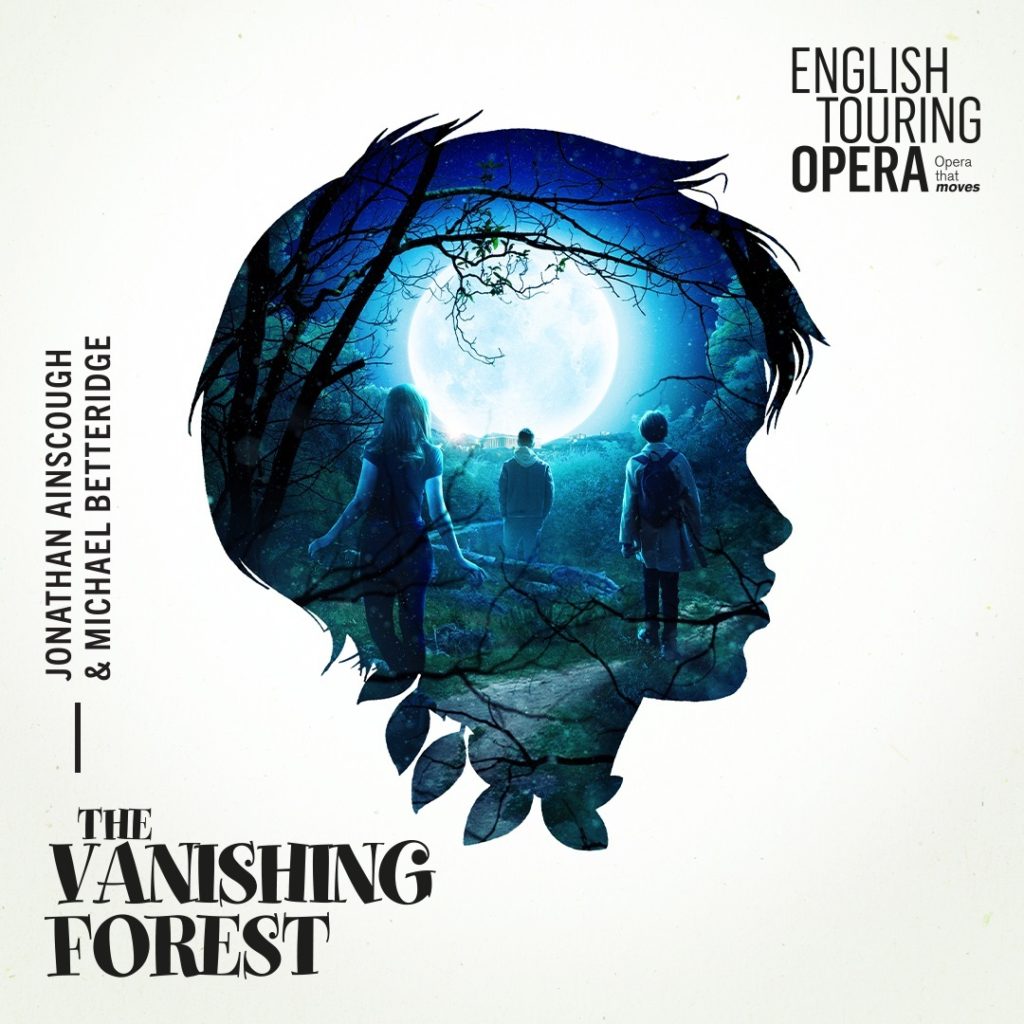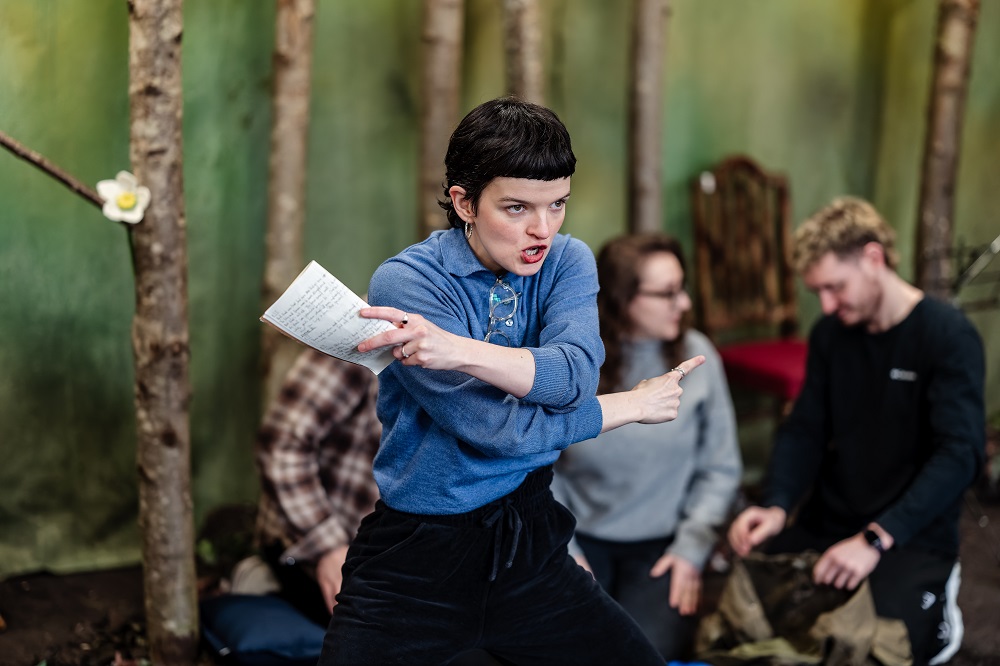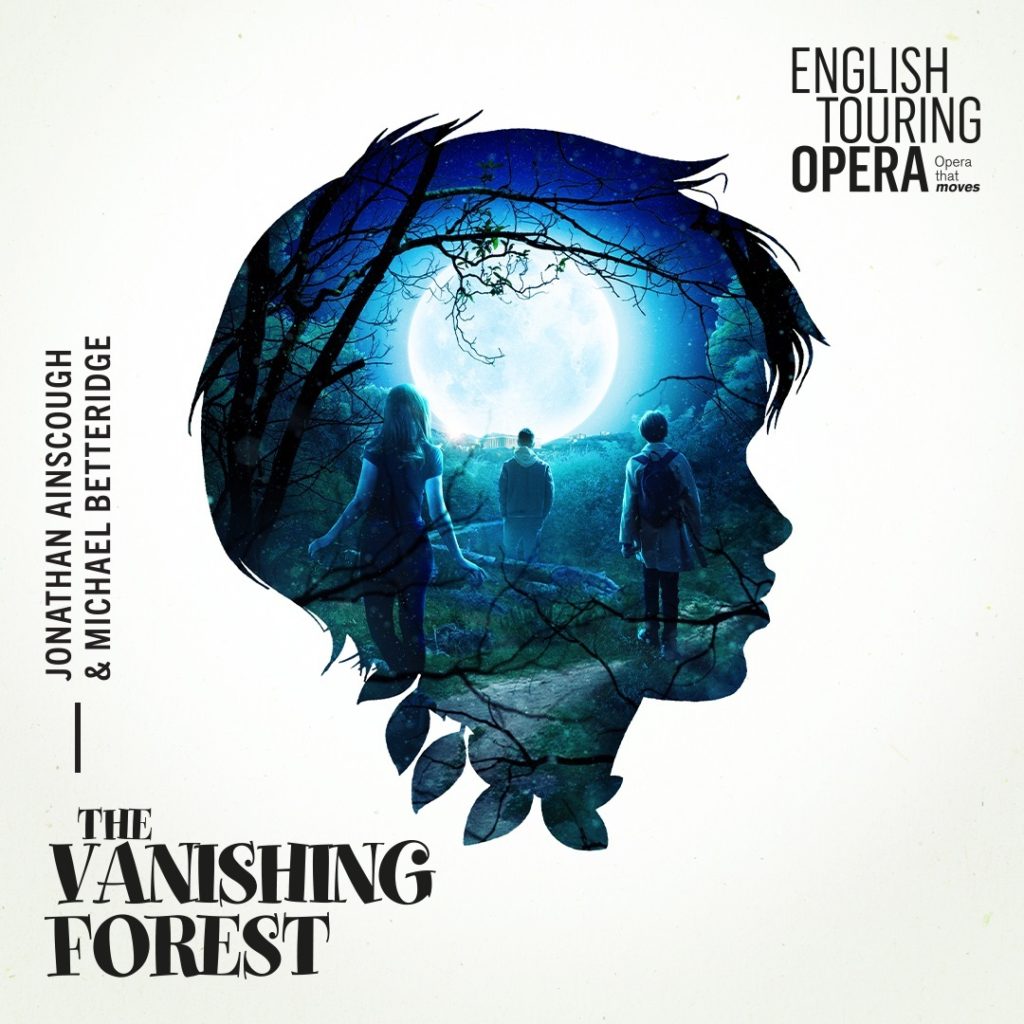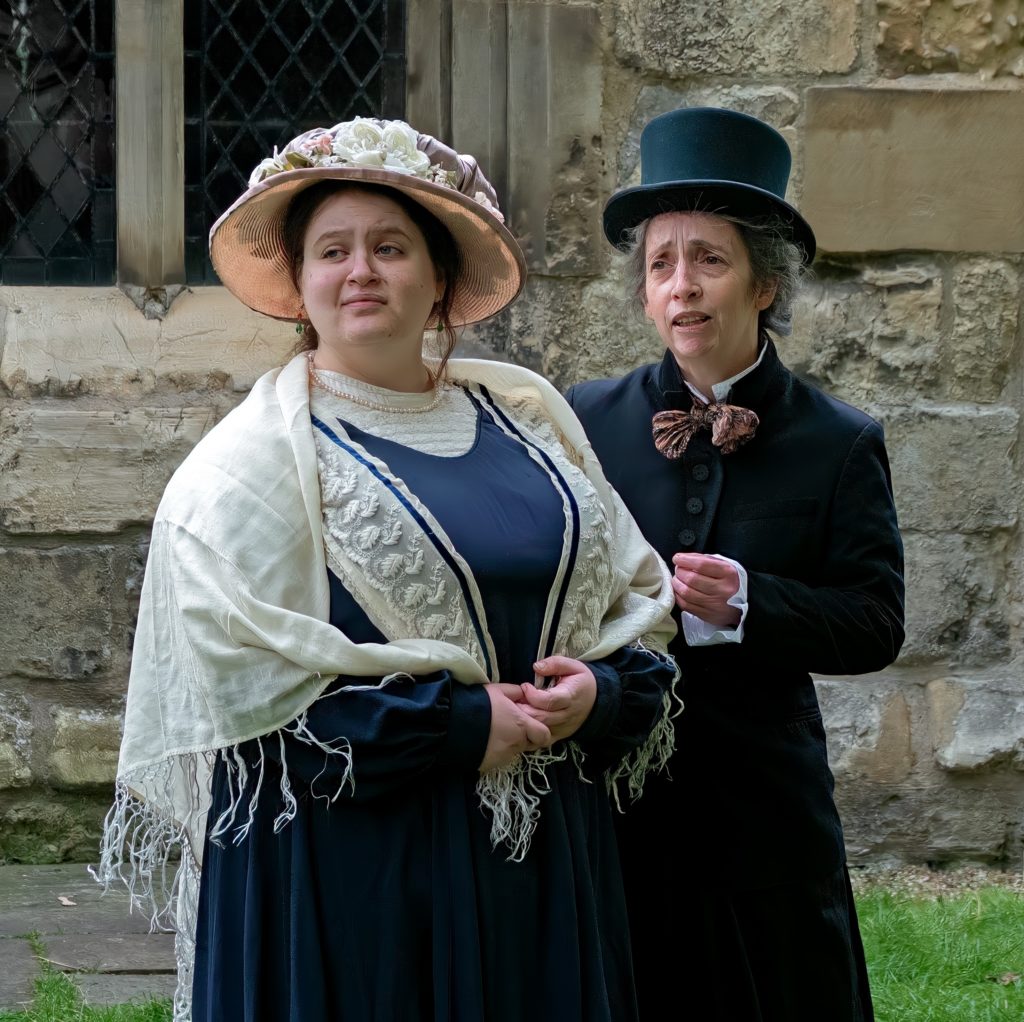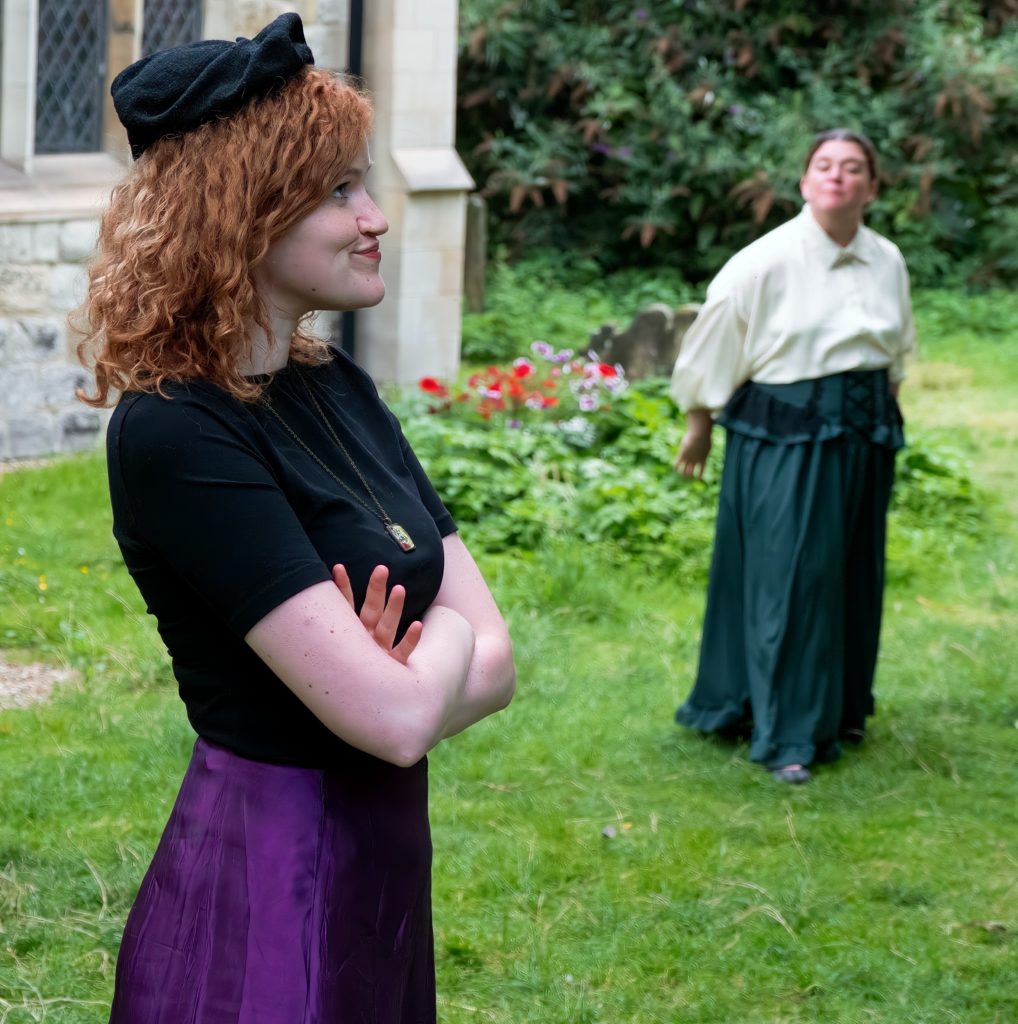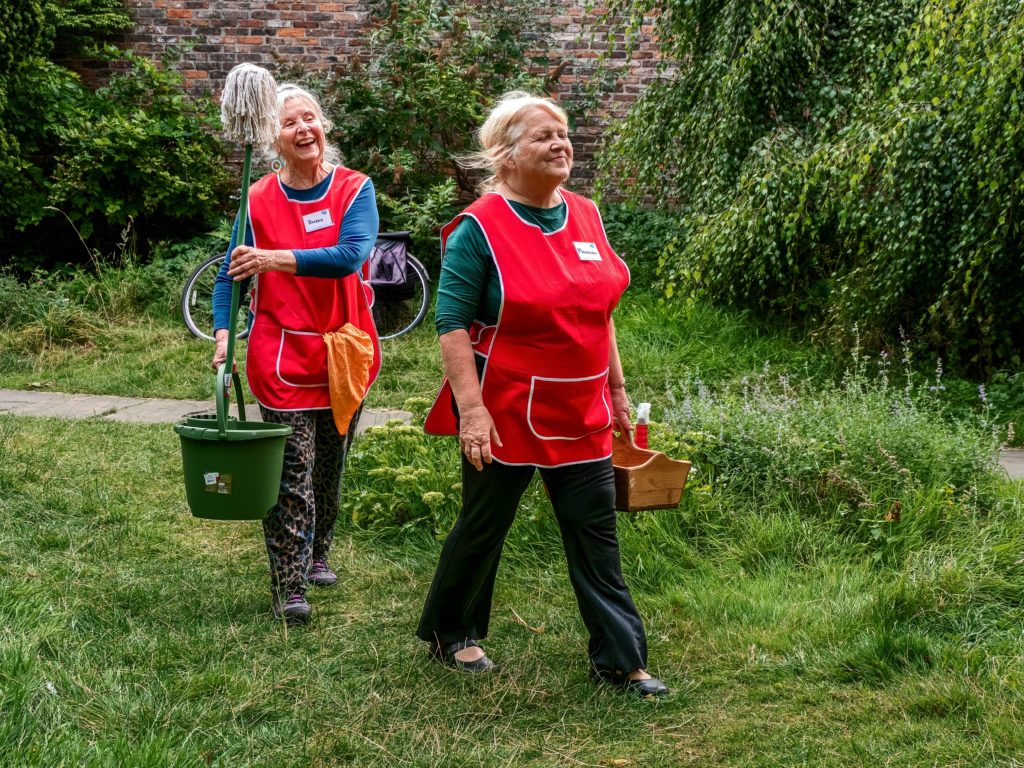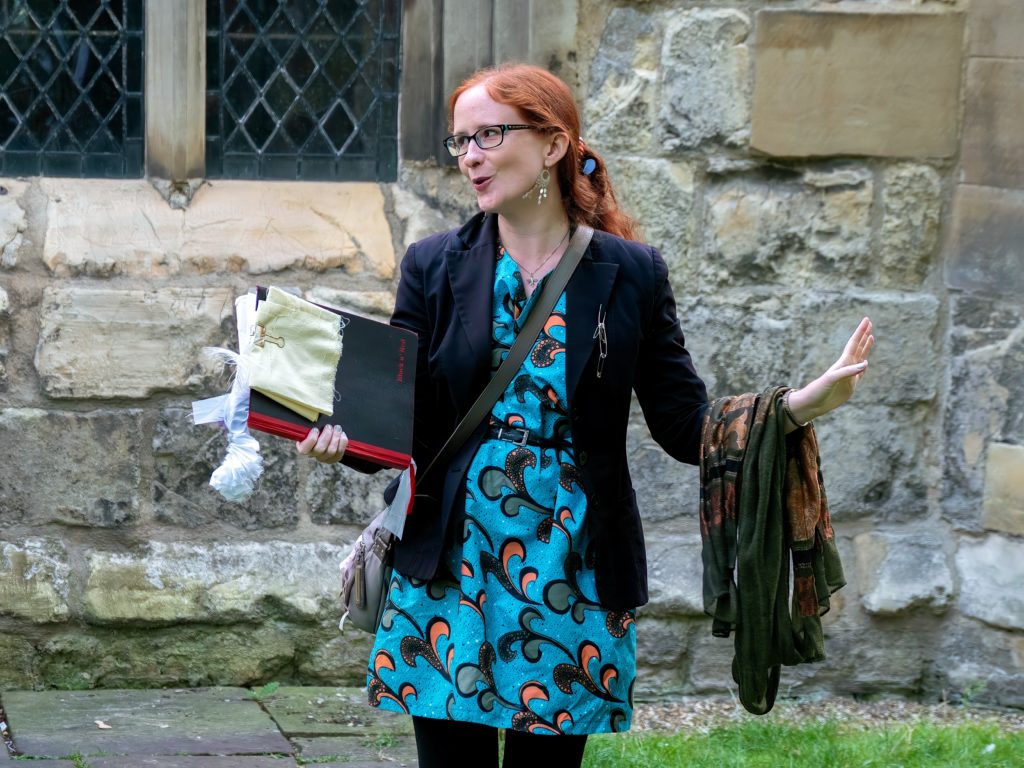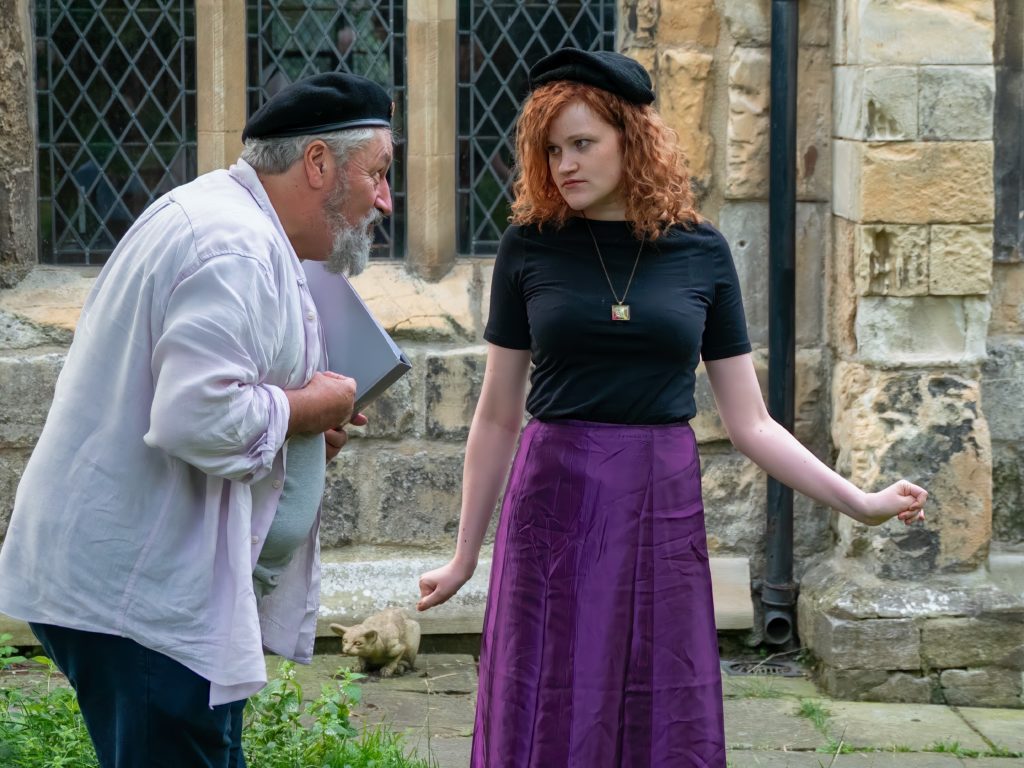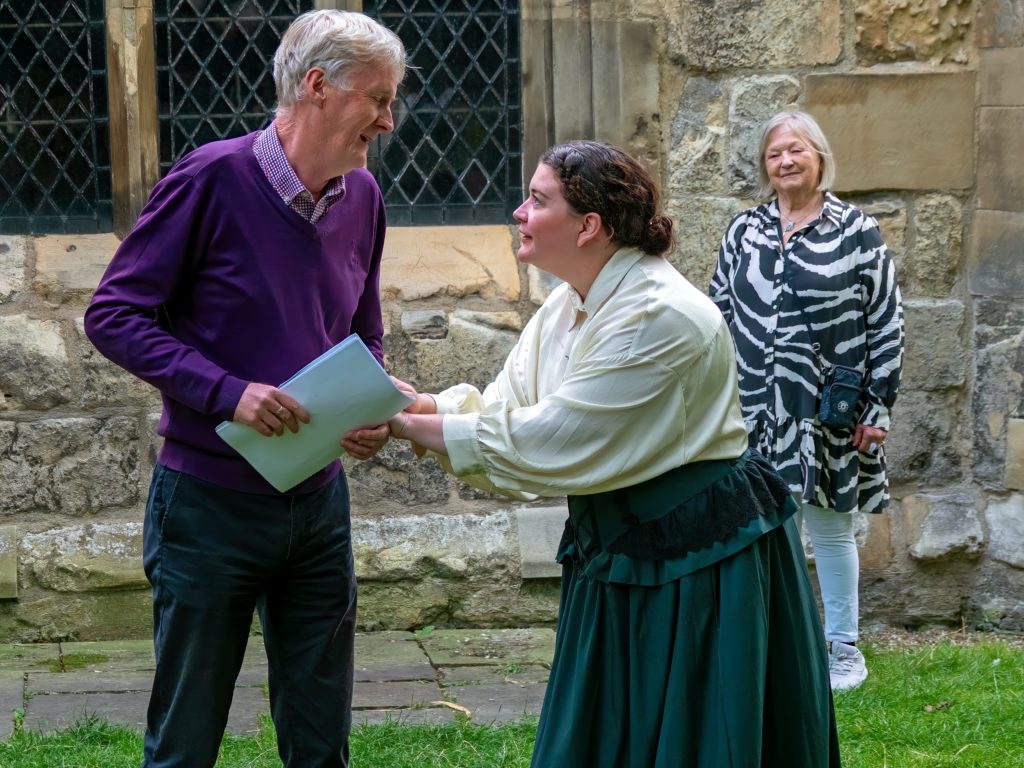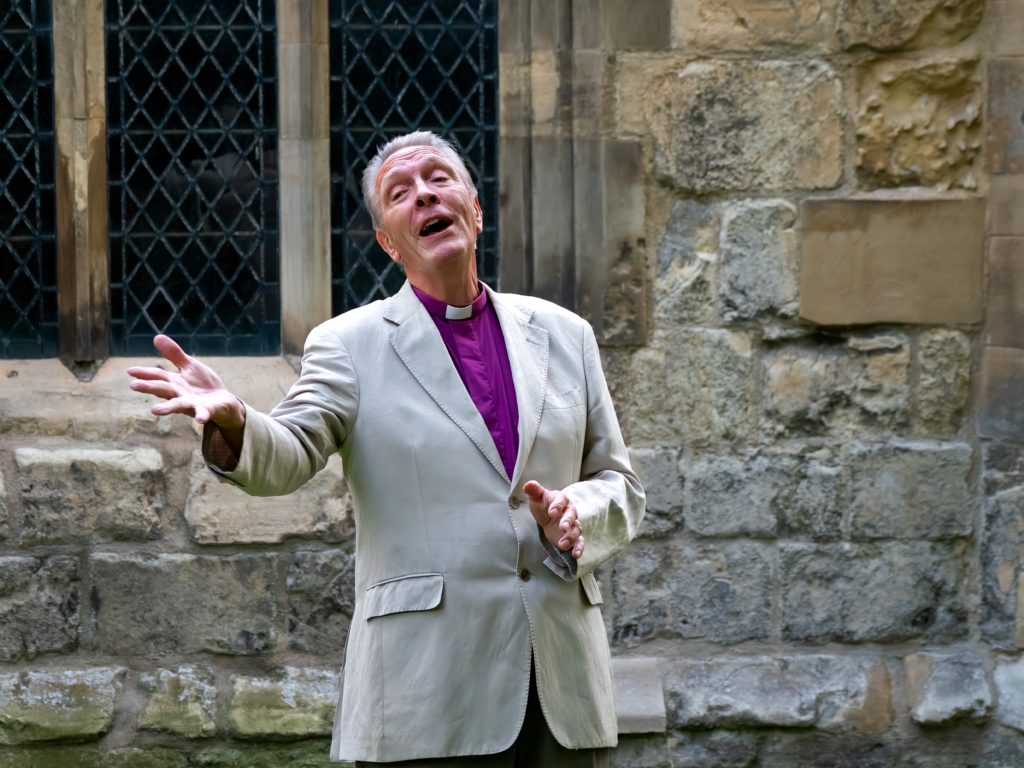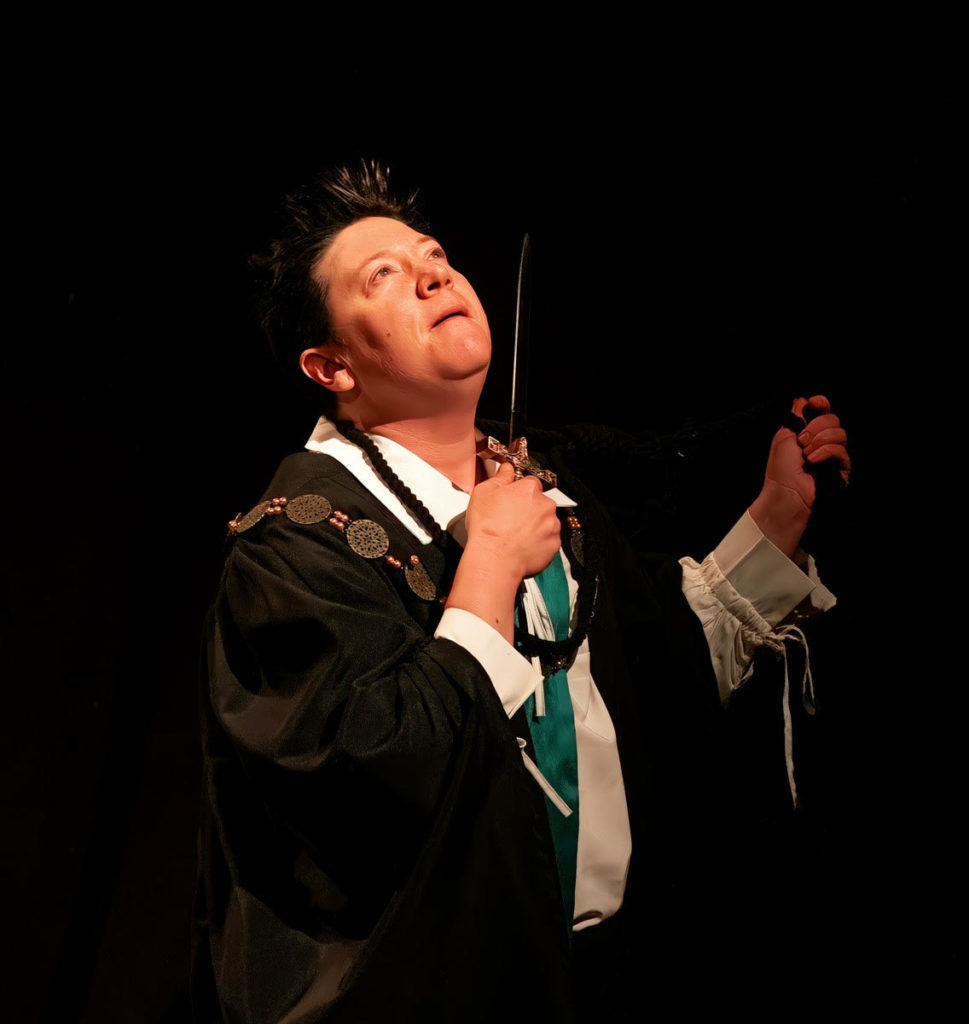
Harry Summers’ Hieronimo: “The Hamlet of the piece” in Thomas Kyd’s The Spanish Tragedy. All pictures: John Saunders
BACK in the Elizabethan day, Thomas Kyd’s The Spanish Tragedy outsold Hamlet.
Truth be told, he was pretty much a one-hit wonder, (even “the one and only” Chesney Hawkes had a minor second hit, I’m A Man Not A Boy in 1991), and Kyd has been long dead and buried, like most of his players in what is now viewed as the groundbreaking template for revenge tragedies.
York Shakespeare Project’s decision to expand the focus beyond the Bard in its 25-year second cycle of the First Folio facilitates the revival of rival works of Ben Jonson, the ill-fated Christopher “Kit” Marlowe and, yes, one Thomas Kyd (1558-1594), the tragic trailblazer.
After the Pop Art explosion and drag and cancel culture of director-designer Tom Straszewski’s take on Marlowe’s Edward II in October 2023, Paul Toy returns to the YSP director’s chair after a 14-year hiatus to steer his fourth YSP production.
Toy had first read The Spanish Tragedy as part of his university Renaissance Theatre course, playing the insouciant wrong’un Pedringano to boot. He was struck by how so many of its ideas – “a ghost seeking revenge, feigned or real madness, a play within a play” – would be echoed in Hamlet by Shakespeare, the alchemist of playwrights. Better lines, better characters, better gags.
The Spanish Tragedy, however, turns out to have been well worth digging up out of its neglected grave. Yes, it is no match for Hamlet, but this is a meaty work, full of myriad theatre styles, as Toy notes, from dumb shows to execution as street theatre, tragedy as classical as Greek dramas, and not least a Last Judgement scene redolent of the York Mystery Plays. And, boy, does Kyd enjoy piling up the bodies till the last man standing.
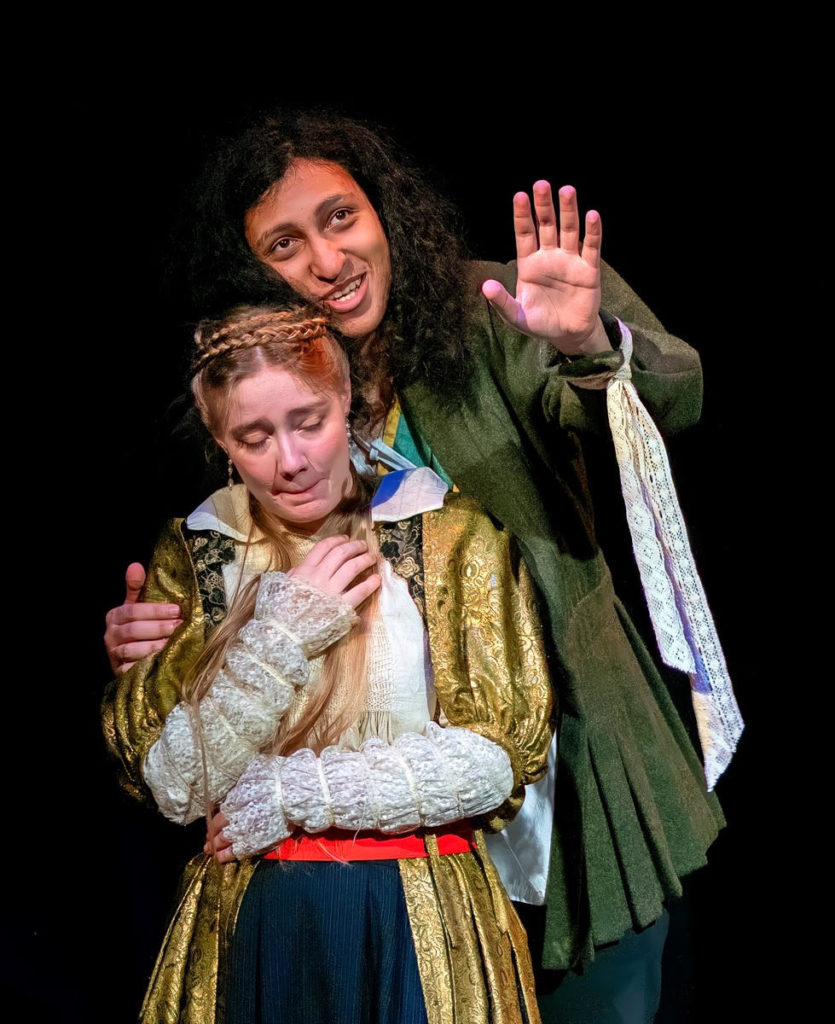
The price of love: Emma Scott’s Bel-imperia and Yousef Ismail’s Horatio in York Shakespeare Project’s The Spanish Tragedy
Working in tandem with set designer and choreographer Viv Wilson and mask maker Tempest Wisdom, plus a rotating team of trainee make-up artists from York College (Grace Gilboy, Beth Shearstone, Keira Hosker, Abigail Horton and Ethan Thorpe), Toy gives The Spanish Tragedy the look of the Day of the Dead, with a nod in Wednesday’s make-up to Heath Ledger’s Joker in The Dark Knight.
Relocated to York from Seattle, Wilson is a sound engineer at Theatre@41, has contributed YSP sets for The Taming Of The Shrew and Two Gentlemen Of Verona, and once toured the world in a dance group and performed burlesque acts on three continents.
From that portfolio, you see how all life is here in YSP, as it should be in a long-running project, and now Wilson makes her debut in “legitimate theatre” as Revenge, resplendent in red and black, her face skeletal and ghostly white, her voice like a 60-fags-a-day midnight hag. Her mood is intemperate, her mission on a par with the Grim Reaper, but with better putdowns.
Wilson’s Revenge takes her seat to one side of the mezzanine level, reached by a staircase with a platform above for executions and such like. To the other is the “ghost seeking revenge”, YSP debutant David Lee’s Ghost of Andrea, drained of all colour by way of contrast with Wilson’s crimson Revenge. They will watch on, like the Chorus in Greek dramas, but with an impact more akin to Macbeth’s witches.
At the heart of The Spanish Tragedy is Harry Summers’ Hieronimo, Marshal of Spain, the vengeful Hamlet of the piece, with almost as many lines, but older, enervated. Summers already had his winter of discontent as Richard III and more woe as Coriolanus, and his ninth YSP role is best yet, delivering on “the power of rhetoric” that struck Toy above all else.
The theme of the failure of justice resonates with the rotting modern world, as Toy turns his audience into judge and jury, for Summers’ Hieronimo and Emma Scott’s equally impressive Bel-imperia in particular to make their case. Not for the first time in YSP colours, Scott’s diction is a delight; likewise her emotional range.
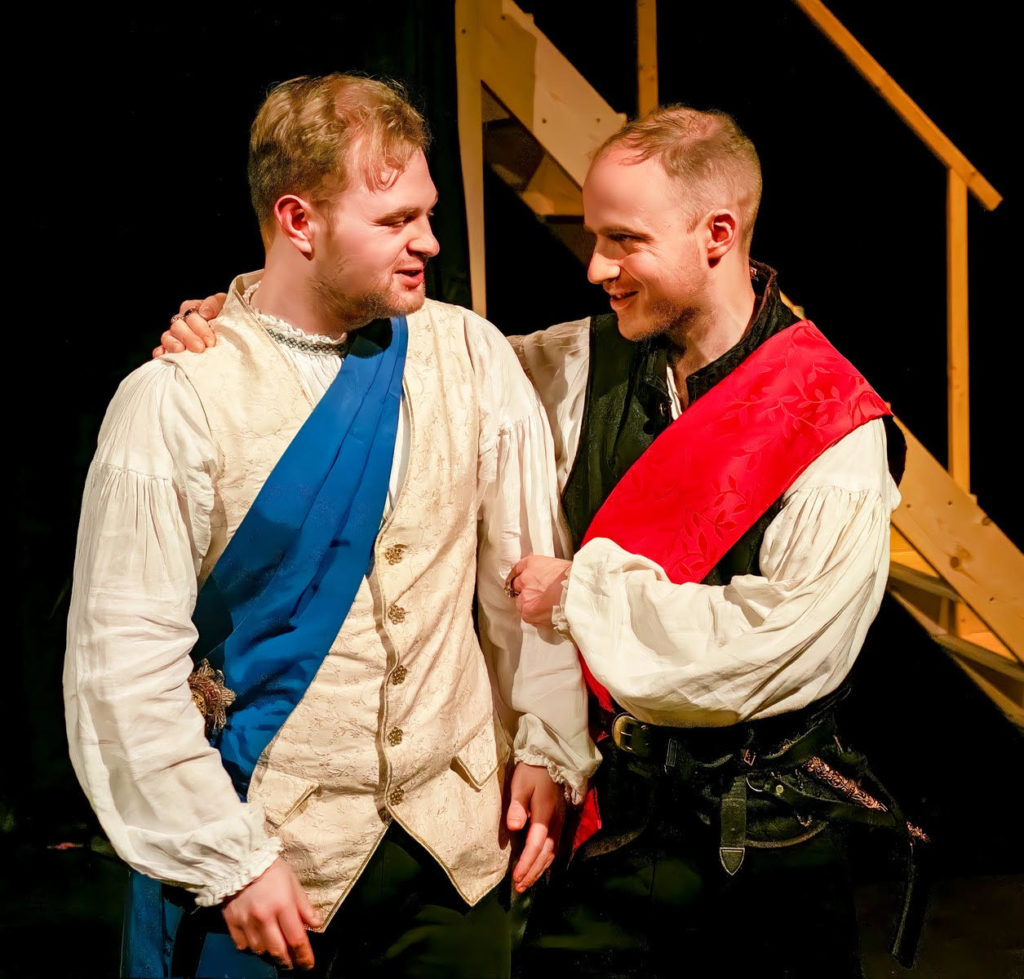
Plotters and rotters: PJ Gregan’s Balthazar, left, and Thomas Jennings’s Lorenzo in The Spanish Tragedy
Courtly roles go to YSP stalwarts, Tony Froud’s King of Spain, Emily Hansen’s Duchess of Castile and Nick Jones’s Viceroy of Portugal , while Tim Holman’s makes his first YSP appearance since 2004’s Titus Andronicus in a brace of roles.
On the dark side are Yousef Ismail’s Horatio, YSP newcomer P J Gregan’s Balthazar and Thomas Jennings’ malevolent Lorenzo, breaking the fourth wall with scene-pinching elan, on trademark crop-haired hitman duty again.
Isabel Azar, Cassi Roberts, Martina Meyer and Ben Reeves Rowley fit the the plot-thickening brief to good effect and Sally Mitcham is the play’s moral conscience as Hieronimo’s troubled wife.
Toy directs as playfully as his name would suggest, even using exquisite choral music by the wife-and-her-lover-murdering Gesualdo pre-show and in the interval. When a hanging takes place, darkness descends on the moment of Alan Sharp’s deadpan Hangman administers the drop, whereupon a scroll of The Hanged Man falls into place. Intricate sword-dancing adds to the spectacle, as do all manner of masks.
By the live nature of theatre, anything can happen. What were the odds of a letter dropped from above by Scott’s Bel-imperia landing in the curtain, out of Summers’ Hieronimo’s sight, no matter where he looked. To the rescue rode the director, in the back row. “Top of the curtain,” he bellowed, bringing the house down. Just one of many good decisions he made in this fruitful resurrection of Kyd’s play of men – and women – behaving very badly.
York Shakespeare Project in The Spanish Tragedy, Theatre@41, Monkgate, York, until Saturday, 7.30pm and 2.30pm Saturday matinee. Box office: tickets.41monkgate.co.uk.
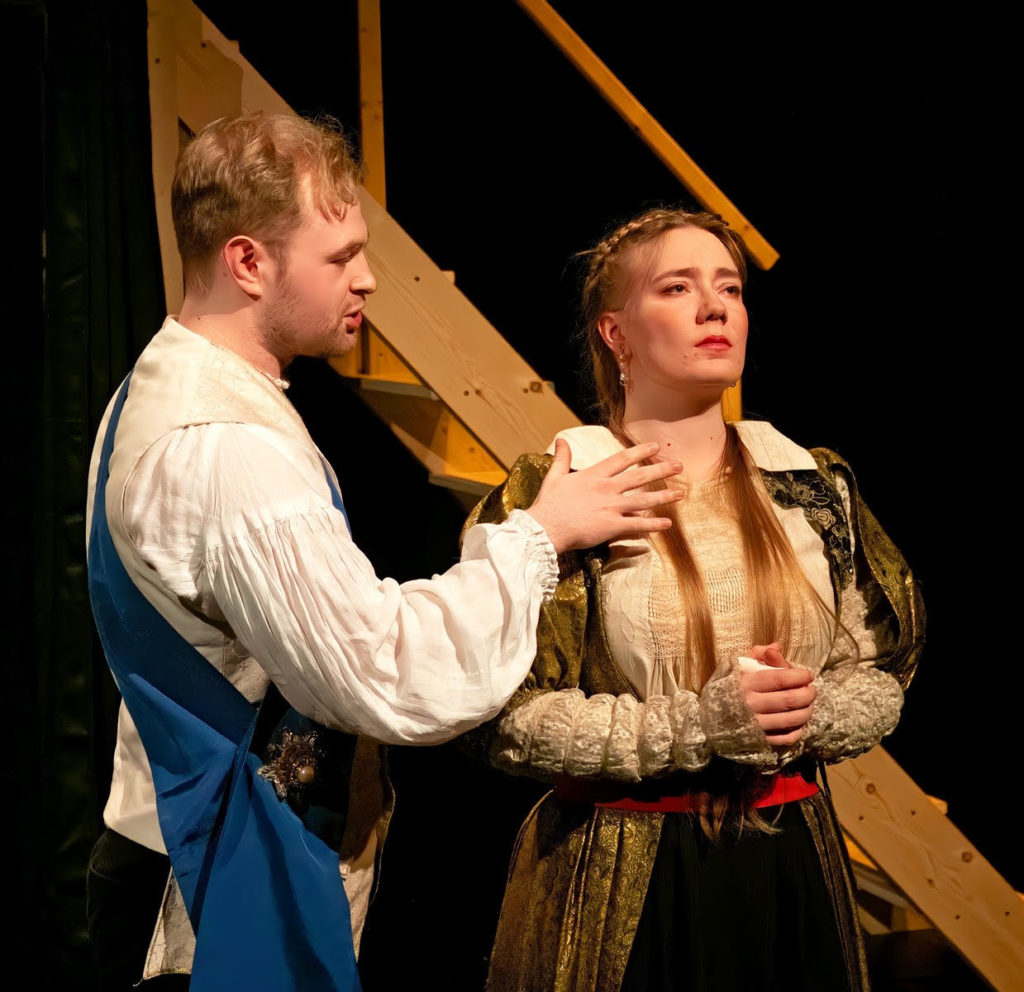
The cold touch: PJ Gregan’s Balthazar and Emma Scott’s Bel-imperia in York Shakespeare Project’s The Spanish Tragedy

